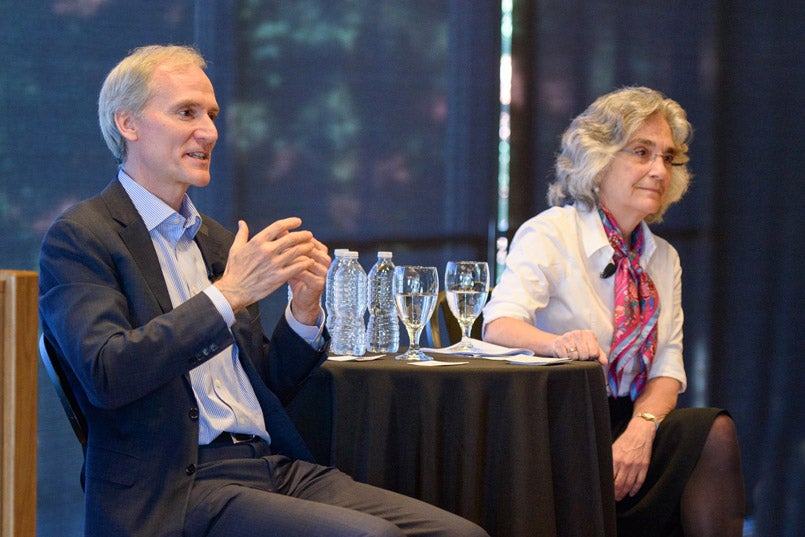March 14, 2018
On the contemplative garden
Questions continue to be asked by members of our community about a contemplative garden we built last summer at the site of a sexual assault that happened in January of 2015. I would like to correct any misimpressions that have arisen. Any narrative that gives the impression that Stanford does not care about sexual violence, or that we do not wish to support survivors, hinders our ability as a community to move forward to address this issue. I personally am committed to working to ensure this doesn’t happen – hence this post.
In the summer of 2016, the survivor of the assault, Emily Doe, read her powerful victim impact statement to the court. That statement has helped to fuel a resurgence of discussion about campus sexual violence nationwide. In the fall of 2016, following a discussion with Ms. Doe’s representative, Stanford agreed to create a peaceful space for our community near the site where the sexual assault occurred. We approached the project with a shared goal of showing support for Ms. Doe and for survivors of sexual violence in our community and beyond. We hoped that the garden would be a restorative place of comfort, healing, and purposeful reflection.
The garden and a fountain were constructed and completed in summer 2017. Ms. Doe, through her representative, agreed to provide a quotation from her victim impact statement for use on a plaque to be placed in the garden.
The first quote proposed by Ms. Doe’s representative was:
You made me a victim. In newspapers my name was “unconscious intoxicated woman,” ten syllables, and nothing more than that. For a while, I believed that that was all I was. I had to force myself to relearn my real name, my identity. To relearn that this is not all that I am. That I am not just a drunk victim at a frat party found behind a dumpster, while you are the All American swimmer at a top university, innocent until proven guilty, with so much at stake. I am a human being who has been irreversibly hurt, my life was put on hold for over a year, waiting to figure out if I was worth something.
While acknowledging the powerful nature of the suggested quote, I and others felt that it expressed sentiments that would not be supportive in a healing space for survivors. We believed there were many passages from Emily Doe’s letter that are both eloquent and appropriate. Her representative agreed to withdraw that suggestion and proposed a second quote:
You took away my worth, my privacy, my energy, my time, my safety, my intimacy, my confidence, my own voice, until today.
I and others felt that it still expressed sentiments that would not be supportive in a healing space for survivors. We consulted with sexual violence counselors and others who work with Stanford students who are survivors of sexual assault. They advised that rather than creating a healing environment for survivors, the quote could have a serious, negative impact for some survivors of sexual violence. We understand that experts can disagree on what is triggering, but we felt we should accept the professional judgment of those who work with our students who have survived sexual violence.
In the spirit of honoring the intent of the garden by promoting hope and inspiration – and to avoid potentially harming some students – we proposed several alternative quotes. Each of them, we believed, was an eloquent statement from Ms. Doe’s victim impact statement:
You are beautiful, you are to be valued, respected, undeniably, every minute of every day, you are powerful and nobody can take that away from you.
On nights when you feel alone, I am with you. When people doubt you or dismiss you, I am with you. I fought every day for you. So never stop fighting, I believe you.
I’m right here, I’m okay, everything’s okay, I’m right here.
After receiving our suggestions, Ms. Doe’s representative communicated to us that Ms. Doe did not want to offer any other quotes and did not want Stanford to select one on her behalf. Ms. Doe’s representative also requested that the garden make no reference to Ms. Doe at all.
Let me end by acknowledging that the sexual assault of Emily Doe at Stanford has changed our community forever. It is our responsibility here at Stanford to work with our community to create and nurture a culture where similar events do not happen in the future, and I will work relentlessly to make that happen.
For more information on sexual assault, please see https://sexualviolencesupport.stanford.edu and https://equity.stanford.edu/reports.
